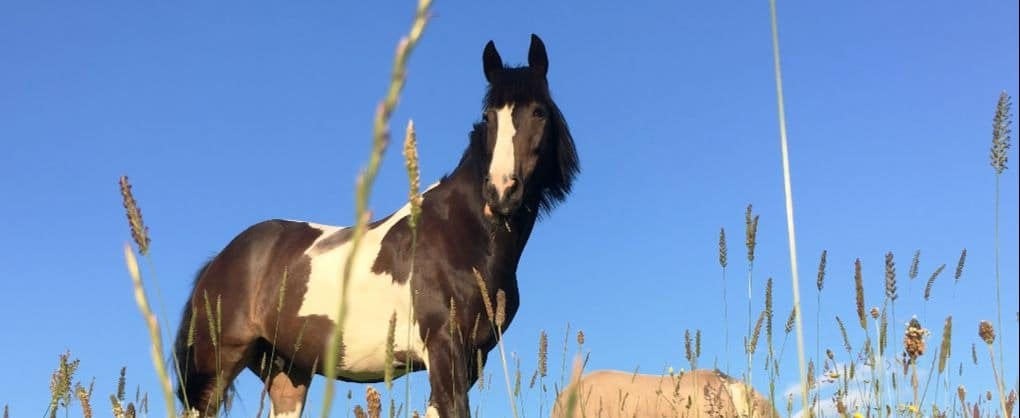Every season brings its problems and even though we look forward to the long light days, summer is no exception.
While the battle to control flies is a visible daily trial at this time of year it’s important to remember about other parasites too such as intestinal worms, pinworm, bots, ticks and summer sores that might affect the health of our horses.
Routine worm count time
Regular worm egg counts should form the base of your programme at this time of year. For healthy adult horses that means sending in a faecal sample to be tested at three monthly intervals. Horses last tested in spring are now due their next test. For youngsters, rescued horses or those with a history of worm problems or high counts, the gap should be shorter; six to eight weeks as they are more susceptible to infection. It’s common sense really to keep an eye on what is going on before a problem is allowed to develop.
No one should still be blindly dosing all through the year. Our worming drugs are far too precious to be wasted in this way and will not stay effective for the future if used in such a random and irresponsible way. Test first and the majority of horses will not need treating.
Is it tapeworm time?
Tapeworm eggs regularly appear in samples under the microscope in summer and are reported where they do. However, a sample clear of eggs does not necessarily mean a horse clear of tapeworm so build the Equisal saliva test into your programme for certainty.
We are often misled into thinking only of spring and autumn as being ‘tapeworm time’. This traditional pattern was a convenient way to include tapeworm doses in those old fashioned rotational drug programmes but there is no other advantage to sticking to this. If you are one of the many who worm with Equest Pramox in the winter months to cover encysted redworm and tapeworm, the summer is an ideal interval to use the Equisal test to check for tapeworm.
Tapeworm eggs are carried by the forage mite, active on grassland all summer and ingested by the horse while grazing. It takes approximately five to six months for the tapeworm to complete its lifecycle. As it is now about six months since that winter dose, it’s a good time to test.
Roundworm reminder
We should be thankful for modern worming products which give us a safety net for treating those horses found to have significant parasite burdens. We should also be wary of forgetting some of the older drugs which still have their uses. There seems to be an emerging problem with roundworm (ascarid) burdens in young horses, some as old as six or seven. These animals have only ever been wormed with modern ‘mectin’ wormers, not always the drugs of choice for treating roundworm as there is some resistance. We have had a run of customers wanting to talk about the ‘huge, white worms’ affecting their horses. It would be wise to make sure that all youngsters are given a specific dose of either pyrantel or fenbendazole in their first year, targeting ascarids. Once dealt with this problem is unlikely to reoccur as ascarids are rarely seen in older animals.
Bot flies
With summer flies comes the potential for bots which lay their yellow, torpedo shaped eggs on the horse’s legs and shoulders. Try to remove these with a bot knife if you can. Your horse will find them irritating and in licking will start the next stage of the lifecycle. They can cause sores at the back of the mouth as they take up residence between the teeth here prior to passing into the horse’s stomach over winter. Once there, it is thought that they cause few problems unless present in large numbers.
A dose of ivermectin or moxidectin late in the year after the first frost should treat them but prevention is better than a cure. We recommend a bot knife as a handy tool to keep in your tack box. Our changing climate and other environmental factors are influencing an increase in the numbers of ticks which we are seeing coming in on our horses, dogs, cats and even ourselves with alarming regularity. These tiny blood sucking parasites live in grassland and latch into the skin of their host to feed.
Tick bites can cause localised skin irritations, anaemia from blood loss in larger numbers and also have the ability to transmit serious diseases such as Lymes Disease. Swift removal is important to reduce the risk of pathology and ensuring they are taken off in one piece without leaving the mouthpiece embedded in the skin will also help to prevent infection developing in the wound. If you have any questions regarding worming or testing for worms get in touch with Westgate Labs they are a family run company who specialise in a quick and easy to use postal worm count service, PLUS as a KBIS customer, you can receive 10% OFF at their online shop!


